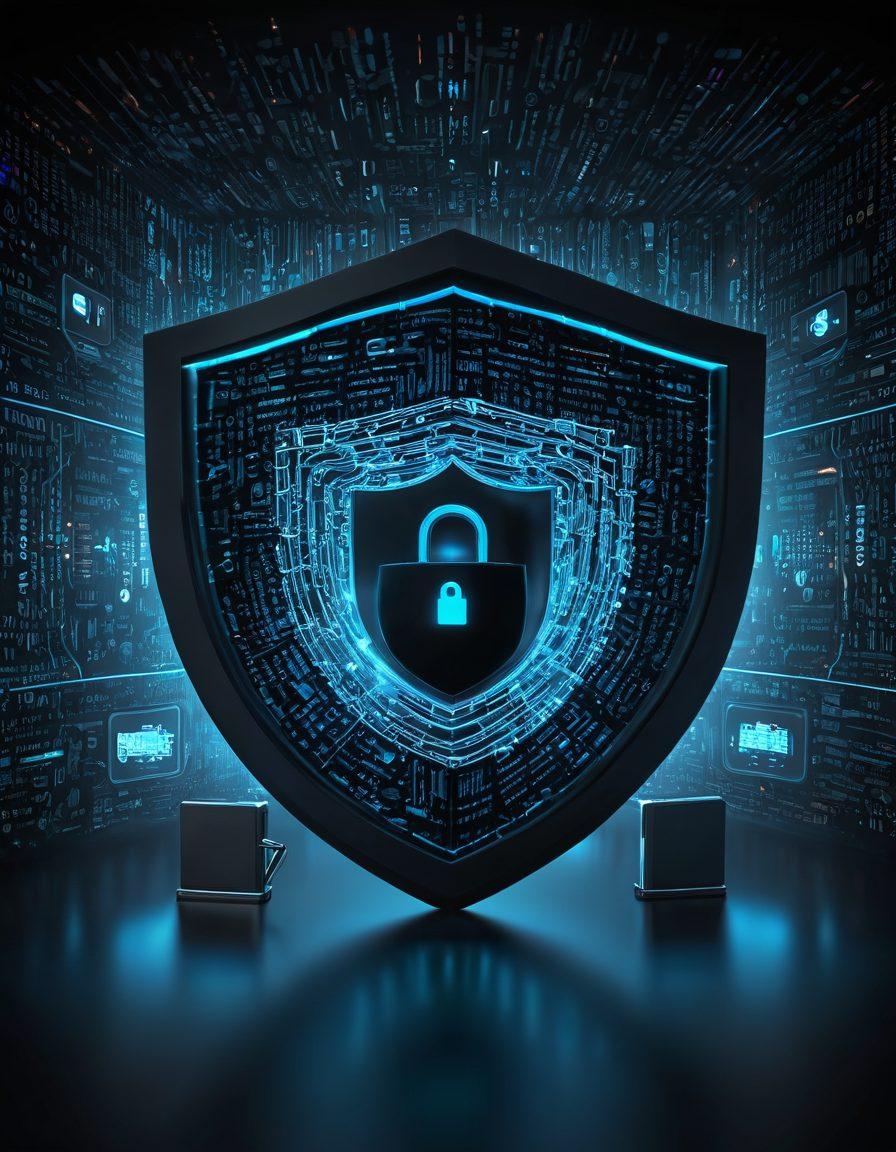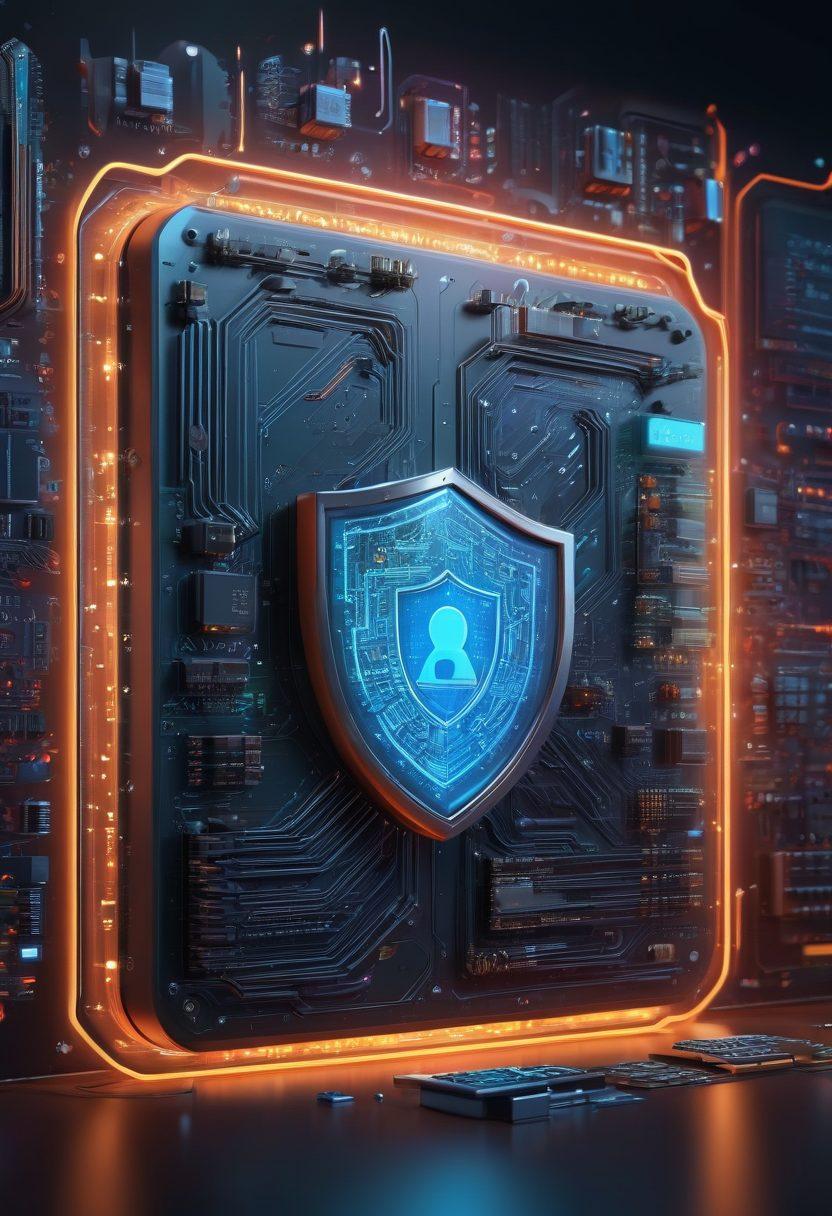Unlocking Internet Anonymity: Your Guide to Safe Browsing and Data Protection
In a world where almost every move we make is tracked and logged online, mastering internet anonymity has become more crucial than ever. The vast expanse of the internet feels like a double-edged sword; on one side, it offers endless information and communication possibilities, while on the other, it presents risks that can compromise our privacy and security. How can we navigate this digital landscape while ensuring our online safety? Luckily, there are tips and tools available that can empower us to take control of our privacy protection and secure our browsing activities.
Imagine this: You start a web log or digital journal to document your thoughts and ideas, but little do you know, every blog post you publish could expose your personal information to prying eyes. Is that the kind of legacy you want to leave behind? To safeguard our digital footprints, it is vital to consider using a virtual private network (VPN). This tool masks your IP address and establishes an encrypted connection, making it much harder for unwanted intruders to track your online activities. As the saying goes, "An ounce of prevention is worth a pound of cure."
Have you ever wondered if you are truly alone while browsing the internet? Maintaining internet confidentiality means being proactive about your web security. One straightforward step you can take is to utilize proxy servers. These intermediary platforms redirect your online requests, allowing you to surf the web anonymously. By doing so, you not only protect your identity but also gain access to geo-blocked content. Just remember, though, that while proxies can be helpful, they may not always provide the same level of encryption as a VPN. Finding the right balance in tools is essential for ultimate data safeguarding.
In this age of increasing cyber threats, protecting your information is paramount. Have you considered the strength of your passwords? Strengthening your login credentials is akin to fortifying the entrance to your home. Pair strong passwords with two-factor authentication, and you’re on a much more secure path. Moreover, ensure your web browsers are set to block tracking cookies. This simple adjustment can drastically increase your online privacy and bolster your safe browsing experience. You wouldn't leave your doors unlocked, so why leave your online accounts vulnerable?
Finally, remember that online anonymity doesn't only stem from the tools you use but also from your behaviors. Always scrutinize the permissions requested by apps and websites. Are they accessing more information than needed? Being mindful of what you share online—your location, personal details, and even casual thoughts in your digital journal—can make a significant impact on preserving your internet security. So, how will you take charge of your online identity today? Your decisions may determine not just your safety, but your digital legacy for years to come.
Exploring Proxy Servers and VPNs for Optimal Privacy Protection
In today’s digital landscape, the quest for internet anonymity is more pertinent than ever. With cyber threats lurking around every virtual corner, ensuring your online safety is not just a mere option—it’s essential. Online anonymity isn’t just about privacy; it’s about empowering ourselves as users. But how can we effectively safeguard our information while striving for a sense of security? As we dive deep into the world of data safeguarding, we come across two powerful tools: proxy servers and virtual private networks (VPNs). Together, they can enhance our web security and help us navigate the vast internet with confidence.
Imagine you’re navigating a bustling marketplace, teeming with individuals trying to sell you their products, all while keeping an ear out for thieves and pickpockets. That’s similar to your experience online, where using a proxy server can function like a trustworthy guide through that marketplace. A proxy server acts as an intermediary, fetching data on your behalf. It masks your IP address, making it difficult for prying eyes to trace your online activities. This leads us to the fundamental question: how can we ensure our web privacy while browsing?
Now, let’s talk about the magical world of virtual private networks, or VPNs. If proxy servers provide crucial support in our journey, VPNs can be seen as the protective cloak wrapped around you. When you connect to a VPN, it creates an encrypted connection between your device and the internet, shielding your data from potential cyber threats. Questions arise: What makes a VPN superior for privacy protection? It comes down to data encryption. While proxies might limit functionality, a well-chosen VPN offers a comprehensive solution that enhances internet confidentiality and promotes safe browsing.
The importance of cybersecurity cannot be overstated. When you’re engaging with a digital journal or web log, whether writing or reading, the last thing you want is for anyone to exploit your information. By utilizing tools that enhance online anonymity, like proxy servers and VPNs, you’re actively taking steps toward protecting your personal data. Just picture yourself exploring social media platforms, confident that your digital footprint remains hidden and secure. What could be more liberating than knowing your online presence is well-guarded against threats?
In conclusion, the journey toward achieving optimal privacy protection is an ongoing effort. By combining the benefits of proxy servers with the power of VPNs, users can unlock a fortified online experience. Becoming aware of these essential tools helps foster a mindset of protection and resilience against the myriad challenges of the digital space. Whether you’re penning a personal web log or simply browsing the internet, remember that your data deserves the utmost care. So, take charge of your internet anonymity, wrap yourself in the armor of web security, and enjoy the freedom that comes from safe browsing.
Safeguard Your Digital Life: Proven Strategies for Enhanced Cybersecurity
In an era where our lives are intricately woven into the fabric of the internet, the question arises: how secure is our online presence? As we immerse ourselves in the digital world, the risks to our privacy and data protection multiply. From browsing social media to online banking, the need for enhanced cybersecurity has never been greater. It beckons us to take charge of our digital journal, ensuring that we safeguard our personal information against prying eyes. So, how can we truly harness the power of internet anonymity and fortify our cyber defenses?
One of the foremost strategies for achieving robust internet anonymity is the use of a virtual private network (VPN). This technology not only provides an encrypted connection but also masks your IP address, making it nearly impossible for anyone to trace your online activities back to you. Imagine a cloak of invisibility while you browse the web—sounds enticing, right? With a VPN, you can engage in safe browsing without the fear of being tracked or having your data intercepted. But remember, choosing a reputable provider is crucial; not all VPNs offer the same level of protection. How can you be sure you're selecting the right one?
In addition to using a VPN, another effective technique for privacy protection involves employing proxy servers. These can act as intermediaries between your device and the web, creating an additional layer of internet security. Proxy servers not only enhance your online anonymity but also allow you to bypass geo-restrictions, giving you access to content that may be blocked in your region. Have you ever wondered what you might be missing by not exploring the broader web through these channels? It opens a world of possibilities while ensuring that you maintain your online confidentiality.
Moreover, a consistent approach to data safeguarding is essential. Engage in active web security practices such as regularly updating your passwords, enabling two-factor authentication, and being cautious about the information you share online. Cybersecurity is not just a tech issue; it’s a lifestyle. You wouldn’t leave your front door unlocked, would you? Similarly, adopting safe browsing habits is a pivotal component of protecting your information. By keeping your digital life secure, you empower yourself to navigate the internet confidently and responsibly. What steps are you taking to ensure your online safety today?
Finally, stay informed about the latest trends in online threats and techniques for data encryption. As technology evolves, so do the tactics of cybercriminals. By understanding how to protect yourself, you can cultivate a culture of vigilance and resilience. Engage in a web log or digital journal to track your cybersecurity journey, making note of what works best for you. Remember, internet privacy is not a one-time effort but an ongoing commitment. Are you ready to embrace these proven strategies for enhanced cybersecurity and take control of your digital destiny? Your internet anonymity matters, and the power to protect it lies within your hands.


